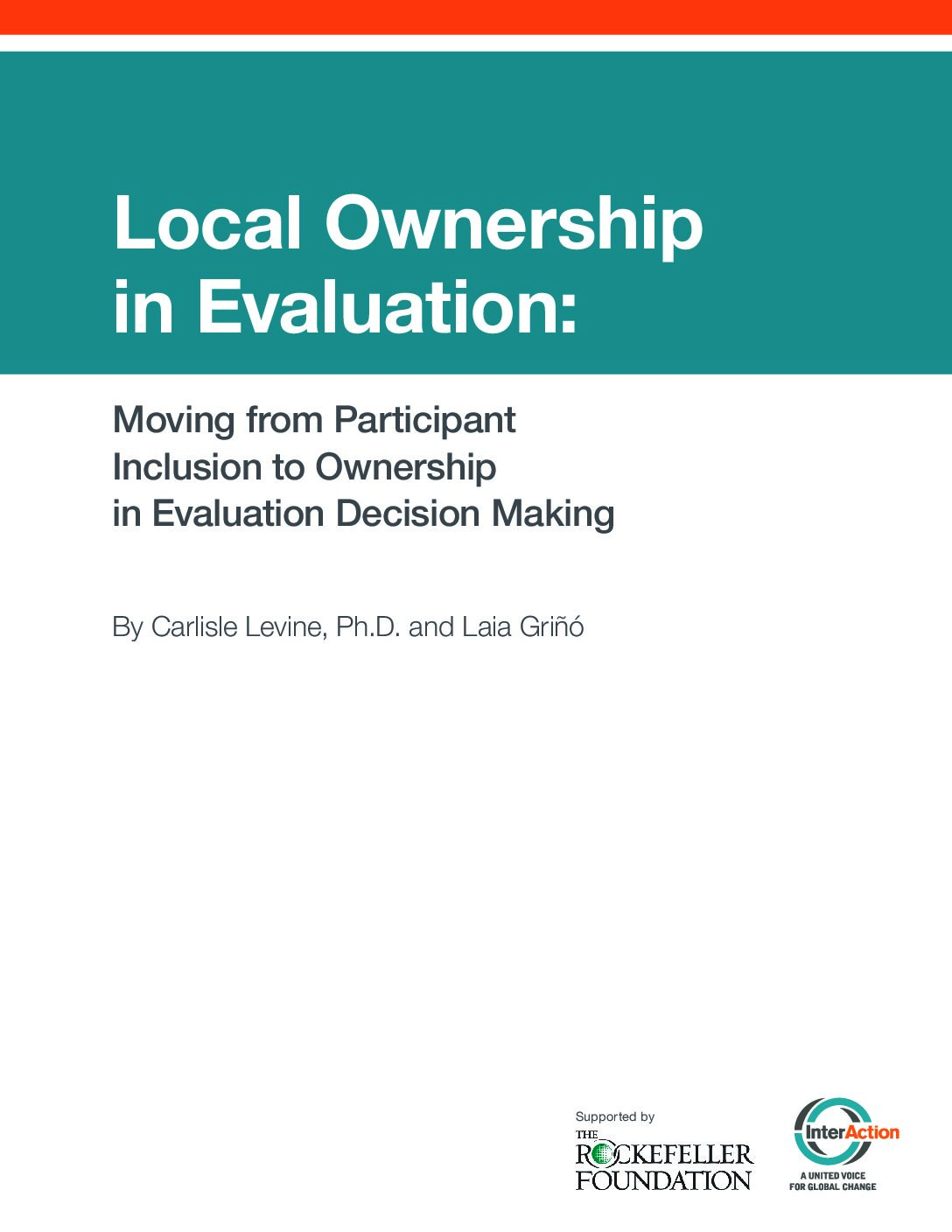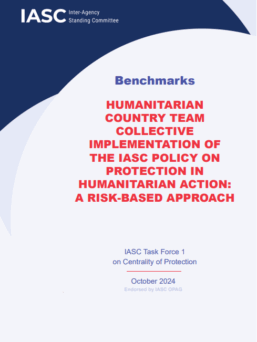This briefing paper developed by InterAction provides practitioners – particularly international NGOs and donors – with a rationale and framework for promoting local ownership of evaluation. As underscored in learning coming from the Results-Based Protection Program, genuine two-way communication with communities and affected populations must extend to all parts of the program cycle – from analysis to design, implementation, monitoring, and evaluation.
- One key point for results-based protection is that “including participants as co-owners in evaluation can improve communication among all stakeholders involved, leading to a better understanding of stakeholders’ values, needs and interests; shifts in implementation to more effectively respond to those concerns; and, therefore, greater benefits.” This is essential to a comprehensive and ongoing protection analysis, designing for results, etc.
- The process of including participants in the evaluation process need not be overly burdensome. “To avoid being overwhelmed by the shift required, organizations can take an incremental approach to pursuing local ownership in evaluation” including by building off of existing participatory approaches to programming.



